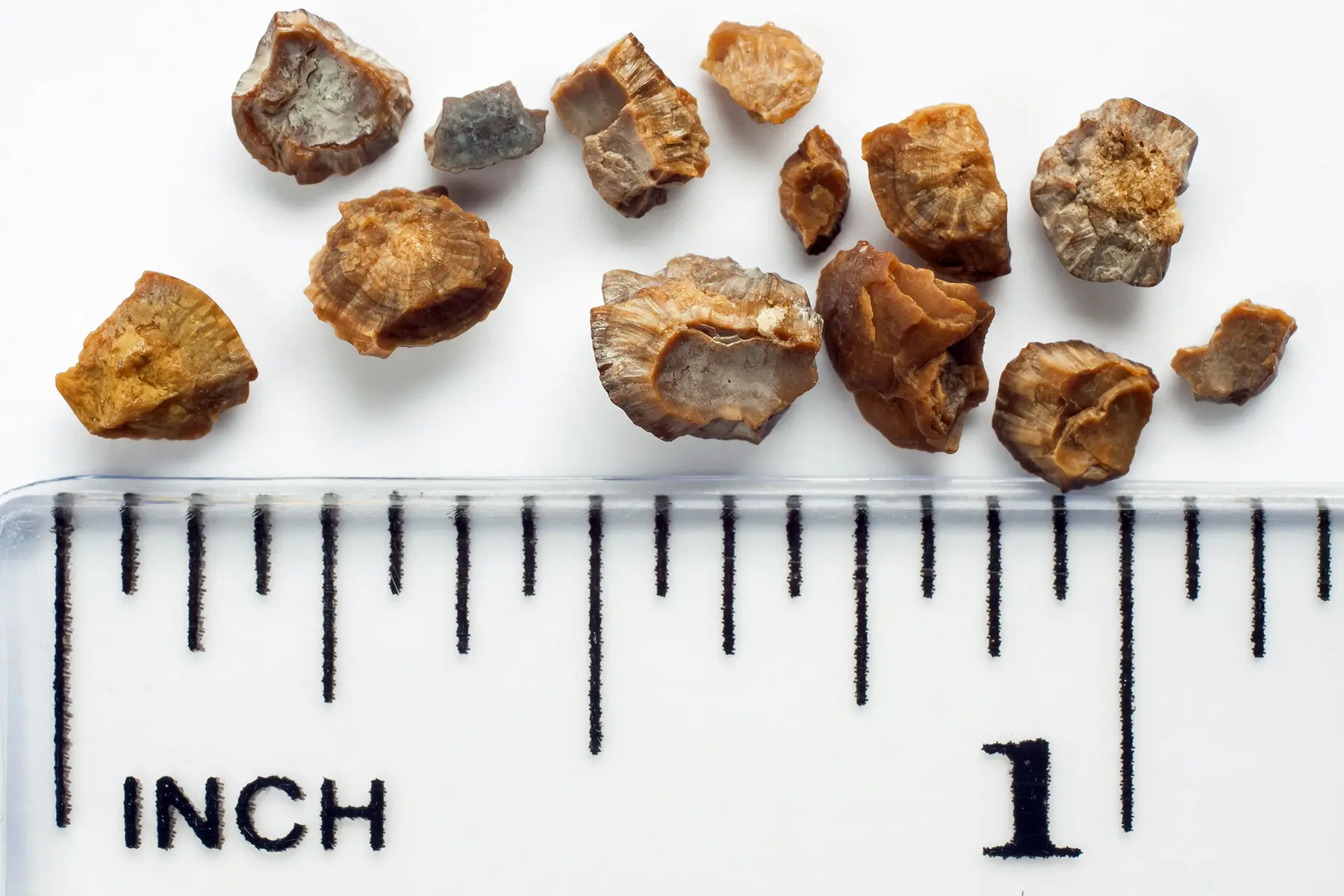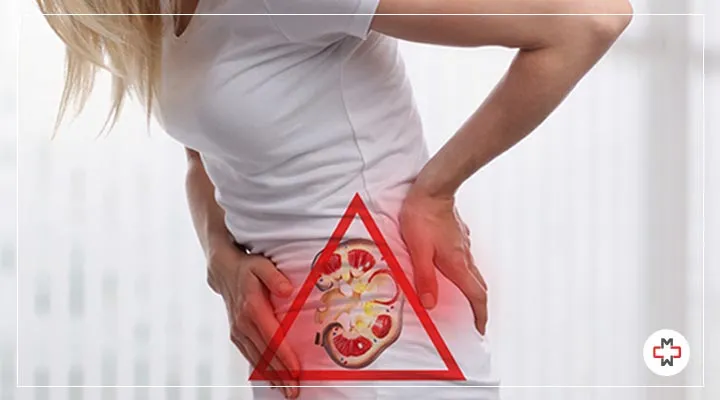Discovering the Manifestations and Causes of Kidney Stones in Contrast to Urinary System Infections: A Detailed Overview
The expedition of kidney stones and urinary system system infections (UTIs) reveals an intricate interaction of symptoms and underlying causes that call for cautious exam. While both conditions can cause hematuria, they provide unique professional features and occur from different etiological aspects. Recognizing the subtleties of each problem is essential for efficient diagnosis and administration. What are the essential distinctions in their signs and symptoms, and exactly how might these notify therapy strategies? The solution to these concerns might give essential insights into the prevention and treatment of these usual urological issues.
Summary of Kidney Stones
Kidney stones, also called renal calculi, form when specific compounds in the urine crystallize and aggregate, bring about the growth of tough down payments within the kidneys. These stones can vary in size, ranging from a grain of sand to a golf round, and can be made up of numerous products, the most usual being calcium oxalate, uric acid, struvite, and cystine. The formation of kidney stones is affected by numerous variables, consisting of dietary practices, fluid consumption, and genetic tendency.
Signs of kidney stones might consist of severe pain in the back or side, blood in the pee, queasiness, and regular urination, specifically as the stone relocates with the urinary system tract. Medical diagnosis commonly includes imaging research studies such as ultrasound or CT scans, alongside urinalysis to determine the stone's make-up.
Treatment options vary based upon the dimension and kind of stone, along with the seriousness of signs and symptoms (Kidney Stones vs UTI). Tiny stones may pass naturally with boosted fluid intake, while larger stones may call for medical interventions such as lithotripsy or medical removal. Recognizing the pathophysiology and risk factors linked with kidney stones is essential for reliable prevention and monitoring
Summary of Urinary System Tract Infections
Urinary system tract infections (UTIs) are usual bacterial infections that affect any type of component of the urinary system, including the kidneys, ureters, bladder, and urethra. They mostly occur when microorganisms, frequently from the stomach tract, go into the urinary system, leading to inflammation and infection. UTIs are categorized into two primary types: uncomplicated and difficult. Uncomplicated UTIs normally take place in healthy individuals with regular urinary systems, while complicated UTIs might occur in people with underlying problems, such as structural abnormalities or jeopardized body immune systems.
The occurrence of UTIs is especially greater in women than men, mainly because of physiological differences, such as a shorter urethra. Danger aspects consist of sex-related task, certain contraceptive methods, urinary retention, and dehydration. The diagnosis of UTIs is typically verified with urine tests, which might reveal the visibility of germs, white blood cells, or red cell.

Symptoms of Kidney Stones
The pain related to kidney stones can manifest in numerous means, commonly leading individuals to seek clinical focus. One of the most usual signs and symptoms is serious pain, generally local in the reduced back or side, which may emit to the abdominal area or groin. This pain, often referred to as sharp or cramping, can happen all of a sudden and may change in intensity.
Additionally, people might experience hematuria, or blood in the pee, which can range from tiny total up to noticeable staining. This symptom might be accompanied by modifications in urinary system habits, such as boosted regularity or urgency, blog along with discomfort throughout urination. Queasiness and vomiting are also common, typically arising from the body's reaction to extreme pain.
In many cases, people may experience high temperature and cools, particularly if an additional infection creates due to the obstruction brought on by the rocks. In general, the mix of extreme pain, hematuria, transformed urinary system patterns, and intestinal signs and symptoms can provide considerable understanding right into the presence of kidney stones, calling for punctual clinical assessment and intervention. Comprehending these signs is vital for prompt medical diagnosis and effective management of the condition.
Signs of Urinary System System Infections
Infections within the urinary system system usually present a range of unique signs that can dramatically influence daily life. The most common symptoms include a persistent urge to urinate, frequently accompanied by a burning sensation during urination, called dysuria. Individuals may also experience increased frequency of urination, generating little amounts of pee each time.
Other remarkable signs include fetid or gloomy urine, which may suggest the presence of microorganisms or pus. In some situations, pee may show up red or pink as a result of the presence of blood, a problem referred to as hematuria. Furthermore, people might experience pelvic pain or stress, which can additionally worsen the feeling of urgency.
Systemic signs and symptoms might also manifest, such as high temperature, chills, and exhaustion, especially if the infection has actually risen to the kidneys. It is vital to identify these symptoms early, as without treatment urinary tract infections can lead to extra click here for more info serious issues. Kidney Stones vs UTI. Trigger medical focus is recommended when these symptoms are observed, permitting for suitable analysis examination and treatment to relieve discomfort and protect against additional health problems
Causes of Each Problem
Regularly, kidney rocks and urinary tract infections emerge from distinct yet in some cases overlapping reasons that can affect individuals in a different way. Dehydration, inadequate liquid intake, and high-sodium diet plans can worsen these problems, promoting crystallization within the urinary system system.

Recognizing these distinctive causes is essential for avoidance and therapy. Kidney Stones vs UTI. While lifestyle alterations may alleviate the threat of kidney stones, suitable health and punctual treatment of urinary system system infections are necessary for minimizing their reappearance and connected issues
Final Thought
In recap, kidney rocks and urinary system infections present unique signs and underlying reasons. Kidney rocks are characterized by serious discomfort and metabolic factors, while urinary system tract infections mostly entail microbial infections resulting in urinary system necessity and discomfort. Both conditions can result in hematuria, their formation devices look at here now vary substantially. Comprehending these distinctions is critical for reliable diagnosis and therapy, inevitably enhancing individual results for those impacted by either problem.
The exploration of kidney rocks and urinary tract infections (UTIs) reveals a complex interplay of symptoms and underlying causes that call for mindful exam.Urinary system infections (UTIs) are typical bacterial infections that impact any part of the urinary system, consisting of the kidneys, ureters, bladder, and urethra.Often, kidney stones and urinary tract infections occur from distinct yet often overlapping causes that can influence people in different ways.In recap, kidney rocks and urinary system infections present unique signs and underlying causes. Kidney rocks are characterized by severe discomfort and metabolic factors, while urinary system infections mainly entail bacterial infections leading to urinary necessity and pain.